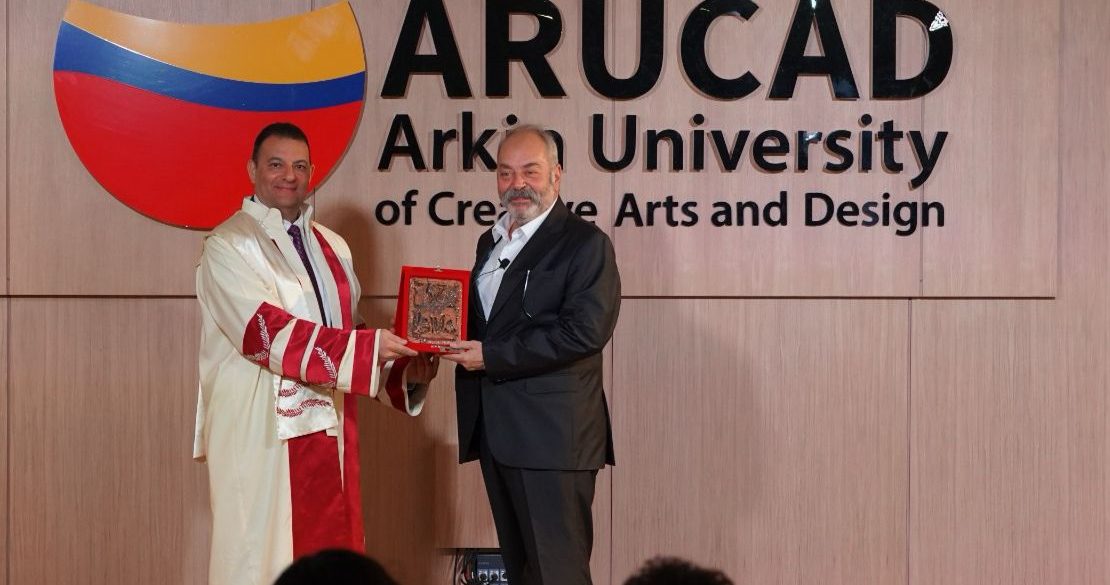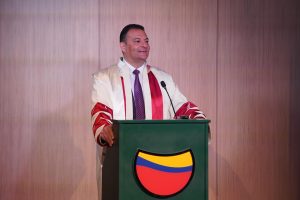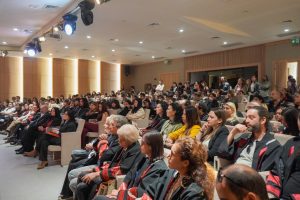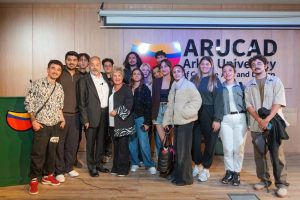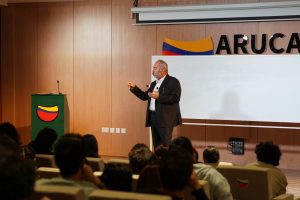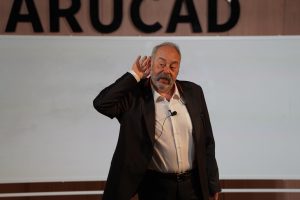Arkın University of Creative Arts and Design (ARUCAD) held the Opening Lecture of the 2025–2026 Academic Year with a talk titled “The Playing Human” by renowned actor and director Ali Düşenkalkar.
The opening lecture, held on Tuesday, 18 November, in the University Conference Hall, was attended by ARUCAD Rector Prof. Dr. Asım Vehbi, vice rectors, academics, students, and guests.
The session began with a speech and presentation by ARUCAD Rector Prof. Dr. Asım Vehbi. Addressing the students, Prof. Vehbi emphasized that they are part of a production-oriented university and that the next four years offer great opportunities to achieve their dreams. He highlighted the importance of the intensive practical courses in the English preparatory and undergraduate programs as a strong foundation for students to develop in their fields, and underlined the value of patience, hard work, and staying committed to creative production.
Encouraging students to benefit from courses outside their own departments, make use of the interaction created by cultural diversity, and actively engage with the exhibition spaces, Prof. Vehbi reminded them: “The opportunities offered here exist so you can realize your dreams; the rest is up to you.”
Following his speech, Prof. Dr. Asım Vehbi presented Ali Düşenkalkar with a special gift produced in the ARUCAD Ceramics and Glass Studios as a token of appreciation.
Opening Lecture by Master Actor Ali Düşenkalkar at ARUCAD
In his lecture titled “The Playing Human,” acclaimed actor and director Ali Düşenkalkar delivered a compelling talk on the origins of acting, the place of play in human nature, and the creative processes of the performing arts. As an artist born in Cyprus, he also spoke about his own journey, sharing insights from his nearly 40-year career at the Istanbul State Theatre and his artistic directorship experience at Bursa City Theater and Nilüfer City Theater.
Referring to Johan Huizinga’s concept of “Homo Ludens,” Düşenkalkar emphasized that play is a fundamental human action that precedes culture. He explained the essence of acting through “living in the moment,” “the ability to represent,” and “cultivating expressive strength,” inviting students to think deeply and explore their own creative potential.
Düşenkalkar noted that being present on stage begins with the ability to think and express, offering young actors valuable insights on discipline, proper speech, and character analysis. He concluded his talk with a short excerpt from Attila İlhan’s poem Mahur Beste, reminding the audience of theatre’s connection to memory, emotion, and the human condition.
After the lecture, master actor Ali Düşenkalkar was warmly received by students and academics. He engaged in conversations and answered questions from those who wished to meet him.



